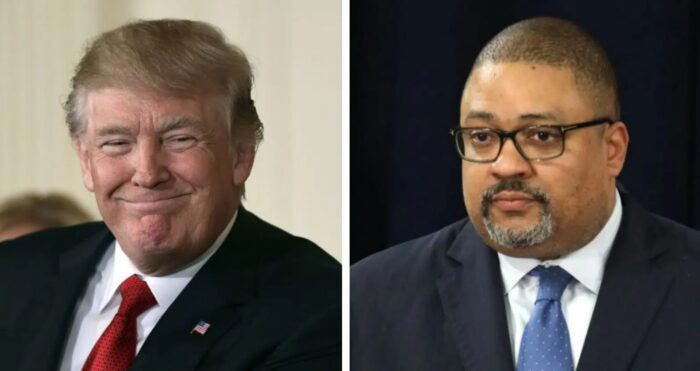Former President Trump has recently achieved several legal victories, temporarily halting most cases that could have complicated his campaign during the general election season. Earlier this month, the Supreme Court ruled in Trump v. United States that a former president enjoys significant immunity from prosecution for official acts performed while in office, but not for unofficial acts. The high court affirmed that Trump is immune from criminal prosecution for “official acts,” leaving it to lower courts to define the boundary between official and unofficial conduct.
“The President therefore may not be prosecuted for exercising his core constitutional powers, and he is entitled, at a minimum, to a presumptive immunity from prosecution for all his official acts,” the majority opinion written by Chief Justice John Roberts states. “That immunity applies equally to all occupants of the Oval Office, regardless of politics, policy, or party.”
The issue of presidential immunity arose from special counsel Jack Smith’s January 6 case against Trump. Trump has pleaded not guilty to these charges. The trial was paused in a lower court while awaiting the Supreme Court’s ruling, which eliminated any charges related to official presidential acts. The Supreme Court’s ruling led Trump’s lawyers to request a delay in the former president’s sentencing in New York v. Trump, who was found guilty on all counts of falsifying business records in the first degree following an unprecedented criminal trial resulting from Manhattan District Attorney Alvin Bragg’s investigation.
The sentencing was initially set for July 11, prior to the Republican National Convention, where Trump was to be formally nominated as the GOP presidential candidate. Judge Juan Merchan agreed to postpone the sentencing, with a hearing on the matter now scheduled for September 18. Trump’s lawyers later requested Merchan to overturn the ex-president’s guilty verdict in lieu of the high court’s ruling, since some of Bragg’s witnesses were working in Trump’s administration at the time.
Trump’s attorneys referenced the Supreme Court ruling, arguing that the court should “dismiss the indictment and vacate the jury’s verdict based on violations of the Presidential immunity doctrine and the Supremacy Clause.” In the formal motion, Trump lawyer Todd Blanche highlighted the Supreme Court’s immunity decision and contended that certain evidence related to “official acts” should not have been admitted during the trial. Specifically, Blanche argued that testimony from former White House officials and employees was inappropriately admitted during trial. A ruling on that motion is pending, Fox News reported.
Within days, U.S. District Judge Aileen Cannon tossed out special counsel Jack Smith’s classified documents case against Trump. He had been charged with improperly retaining classified records at Mar-a-Lago. He pleaded not guilty to all 37 felony counts from Smith’s investigation, including willful retention of national defense information, conspiracy to obstruct justice, and making false statements. However, Cannon completely dismissed the case, asserting that Smith’s appointment and funding were unlawful, citing the Appointments Clause in the Constitution. Smith is appealing.
Meanwhile, in Fulton County, Georgia, District Attorney Fani Willis charged Trump with alleged interference in the 2020 election. Trump has pleaded not guilty to all counts. The judge in that case dismissed six of the charges against Trump, ruling that Willis had failed to provide sufficient detail in her allegations.
The case was thrown into uncertainty when it was revealed that Willis reportedly had an “improper affair” with Nathan Wade, a prosecutor she hired to help bring the case against Trump. Wade was later removed. Last month, the Georgia Court of Appeals paused the proceedings until it reviews the case to disqualify Willis in October, marking another significant setback for her. Last week, the Georgia Court of Appeals scheduled a hearing for Trump’s argument to disqualify Willis on December 5, a month after the 2024 presidential election.
Meanwhile, Trump’s attorneys could leverage the Supreme Court ruling in several civil cases he is facing. In the civil defamation case filed by columnist E. Jean Carroll, Trump was ordered to pay over $83 million in damages after he denied her allegations of rape in the 1990s. Trump denied the accusation while in office during a press briefing at the White House. His lawyers might argue that the denial was part of an official presidential action. Trump’s denial led Carroll to file a defamation suit, arguing that his response damaged her reputation.
“Trump is also appealing the civil fraud ruling that demanded he pay more than $450 million after a lawsuit brought against him by New York Attorney General Letitia James,” Fox added. “Trump’s legal team this week filed paperwork with a mid-level appeals court, calling the ruling ‘unconstitutional.’



